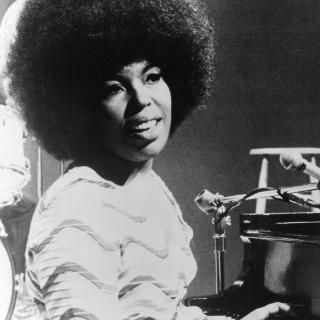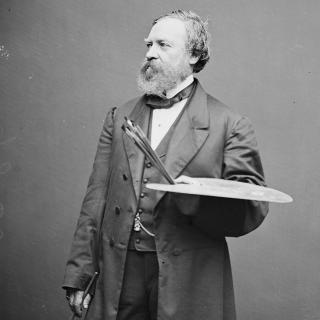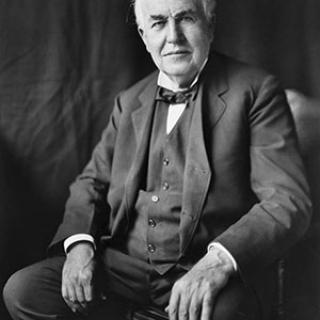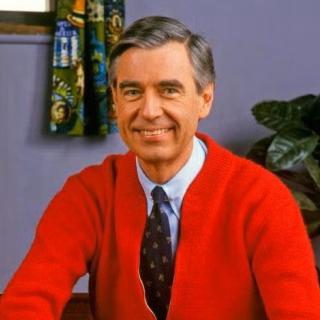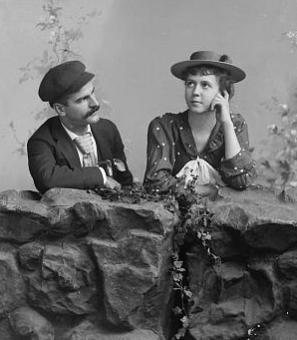The Beatles' Awkward Embassy Soiree
In previous posts, we described the arrival of the Beatles in Washington on the afternoon of February 11, 1964 — two days after their famous nationwide TV appearance on The Ed Sullivan Show in New York — and their performance that evening at the Washington Coliseum, which was the first live public concert by the group in the U.S.
But even after the Beatles finished their 12-song set to the screaming approval of a teenaged crowd that included future U.S. Senator and Vice-President Al Gore, the evening was still young. In those days, Washington, not known for its nightlife, didn't have an equivalent to New York's swinging Peppermint Lounge, where the Beatles had spent a wild evening prior to their Ed Sullivan appearance. And since President Lyndon Johnson didn't invite them to the dance he was hosting that night in the White House's East Ballroom, the group had to accept the next best offer. They rushed off in limousines to the British Embassy on Massachusetts Avenue NW, for a charity ball.
As George Harrison later told biographer Hunter Davies, it was not an event that they cared to attend. While in Paris, for example, they had turned down a previous diplomatic dinner invitation from Lady Dixon, wife of the British ambassador to France. "We always tried to get out of those crap things," Harrison said. "But that time [in Washington] we got caught. They are always full of snobby people who really loathe our type, but want to see us because we're rich and famous. It's all hypocrisy. They were just trying to get publicity for the embassy."
The event was a dance to raise money for something called Junior Village and also for the National Society for the Prevention of Cruelty to Children, a pet cause of the British ambassador's wife, Lady Ormsby Gore. Washington Post reporter Judith Martin — who eventually would become better known as syndicated advice columnist Miss Manners — was on hand. Her dispatch described how police ringed the embassy to keep out hordes of teenaged Beatles fans, as the embassy's party-goers crowded expectantly around the stairway. Finally, embassy press secretary Frank Mitchell announced: "Attention, the Beatles are now approaching the area."
When the Beatles came into the embassy, followed by Lady Ormsby Gore, the diplomats and their elegant guests abruptly abandoned their usual decorum. Instead, as Martin reported, they "shrieked, squealed, pushed and kicked each other to get a look at what one stately diplomatic wife termed 'those darling little baby boys.'"
The Fab Four were taken aback, but one of them — Martin, who apparently at the time couldn't tell them apart, doesn't specify, but we're guessing it may have been John Lennon — quickly bounced back with a quip. "Please don't throw jelly beans," the unidentified Beatle said. "Throw peppermint creams. They're softer when they hit." The group proceeded to make silly faces at the assemblage.
According to Beatles biographer Davies, the ambassador, Sir David Ormsby-Gore, greeted Lennon with "Hello, John."
Lennon, apparently feeling his oats, decided to pull a prank on the ambassador. "I'm not John," he explained. "I'm Charlie. That's John." He directed the ambassador toward Harrison.
"Hello, John," the ambassador said to Harrison.
"I'm not John," Harrison replied, joining in on the gag. "I'm Frank."
"Oh dear," the ambassador said.
From there, however, things started to go downhill. According to Davies, several elderly female guests, drinks in hand, accosted the Beatles and demanded autographs, and junior officials started ordering them around, insisting that they oblige. "Sign this," one said to Lennon, who declined. "You'll sign this and like it."
Then, a young woman guest snuck up on Ringo Starr, removed a pair of nail scissors from her purse, and to his shock, started snipping locks of his hair.
Lennon left early, according to Davies, but Harrison, Starr, and Paul McCartney bravely stuck it out a little longer. The ambassador and his wife, who'd been embarrassed by the crowd's behavior, told the group how sorry they were. It didn't do much good. "The Beatles loathed that reception," manager Brian Epstein said afterward. From then on, they refused all invitations to such events.
The next day, the Beatles returned to New York to prepare for their concert at Carnegie Hall. They would return to Washington on August 15, 1966, for a concert at District of Columbia Stadium, which several years later would be renamed to honor the slain U.S. Senator and presidential candidate Robert F. Kennedy.


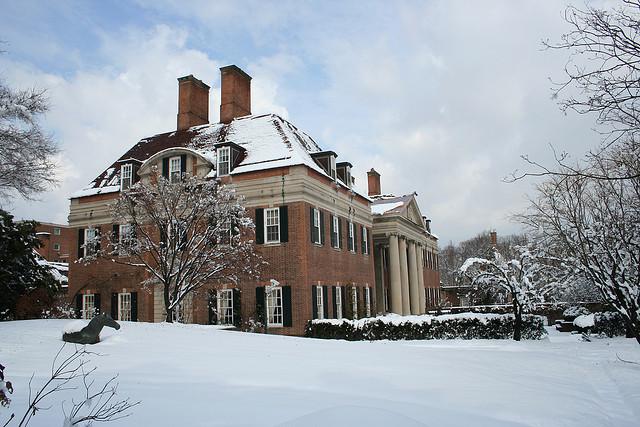
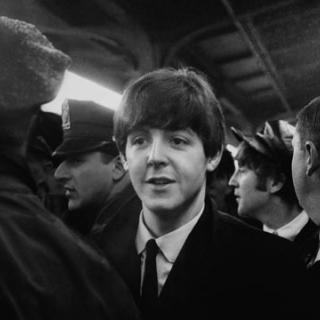
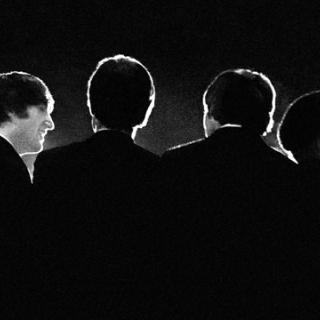
![Sketch of the mythical fuan by Pearson Scott Foresman. [Source: Wikipedia]](/sites/default/files/styles/crop_320x320/public/2023-10/Goatman_Wikipedia_Faun_2_%28PSF%29.png?h=64a074ff&itok=C9Qh-PE1)







